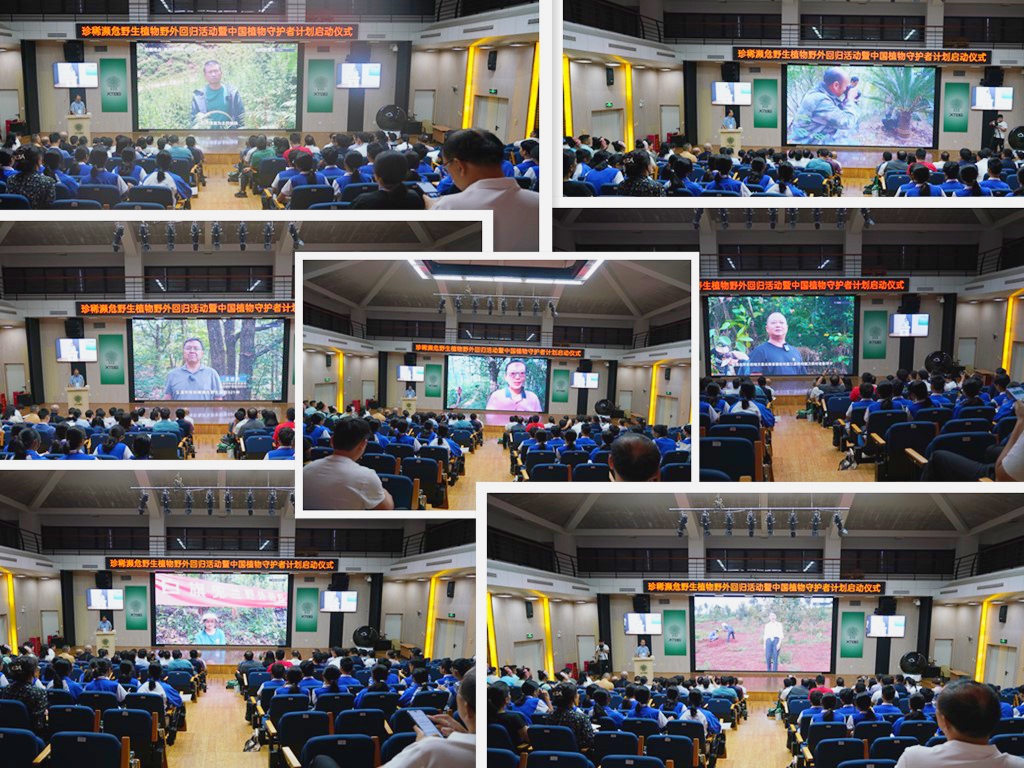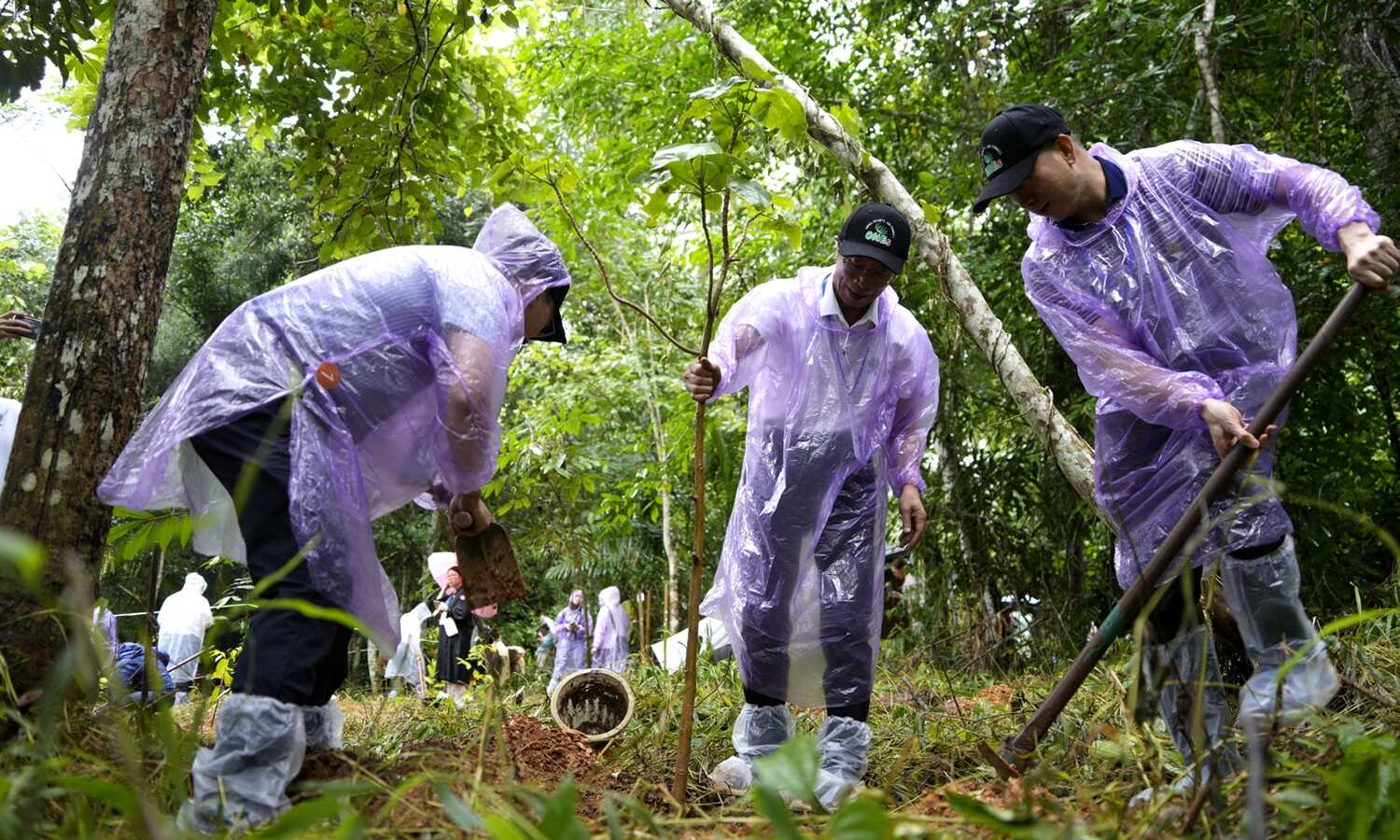(Video credit: People's Daily)
On August 27, the "China Plant Guardian Program" jointly initiated by the National Forestry and Grassland Administration and the Chinese Academy of Sciences (CAS) was launched at Xishuangbanna Tropical Botanical Garden (XTBG).
The event was composed of on site and online activities. Through activities such as the field return of rare and endangered wild plants and science popularization live broadcasts, the whole society is called upon to actively participate in plant conservation.
At the event site, through activities such as the field return of rare and endangered wild plants and science popularization live broadcasts, the whole society is called upon to actively participate in plant conservation.
Wu Zhongze, the deputy director of the Wildlife Protection Monitoring Center of the National Forestry and Grassland Administration, Tian Jianhong, the deputy director of the Yunnan Provincial Forestry and Grassland Bureau, and Yang Yongping, director of XTBG, each delivered speeches. The leaders present jointly initiated the China Plant Guardian Program.

Leaders launch China Plant Guardian Program
On the day of the event, a batch of rare and endangered plant seedlings were reintroduced into the Green Stone forest within the Xishuangbanna National Nature Reserve, including 9 species of national key protected plants and extremely small populations in Yunnan Province, such as Parashorea chinensis, Dipterocarpus retusus, Etlingera yunnanensis, Clerodendrum brachystemon. At the same time, 16 species of rare and endangered plants, totaling more than 3200 individuals, including Cycas hongheensis, Pachylarnax sinica, and Paphiopedilum spicerianum were reintroduced into the wild in seven cities and prefectures of Yunnan Province. 11 participants from universities, research institutes, and social organizations shared cases and exchanged experiences on the protection of rare and endangered wild plants.

Representatives share cases and exchange experiences on the protection of rare and endangered plants.
“In addition to returning rare and endangered plants to nature, we will also promote the bred seedlings into family courtyards, campuses, and parks. Our goal is to have someone guard every plant, and we hope that everyone will participate in the work of plant protection," said an official with Yunnan Provincial Forestry and Grassland Bureau.
The "China Plant Guardian Program" is China's first online platform aimed at promoting public participation in plant diversity conservation. Any individual, family, institution, or local government can apply to become a "Guardian" through the platform. During the one-year guardianship period, "Guardians" fulfill their guardianship duties by educating people around them, drawing pictures for protected plants, and forwarding relevant information. After successfully completing the tasks, "Guardians" can obtain a uniquely coded certificate of recognition.
It is reported that Yunnan has more than 19,300 species of higher plants, with 542 species listed as nationally protected. It is one of the most important treasures of plant resources in China. Wild Plants with Extremely Small Populations (WPESP) are plant species with high risk of extinction that are in urgent need of conservation. In 2005, Yunnan took the lead in proposing the concept of "protection of extremely small populations of wild animals and plants." Since then, breakthrough progress has been made and more than 160 plant species with extremely small populations have been conserved, among which 31 have been reintroduced to the wild.

Reintroducing rare endangered plants into the wild.



